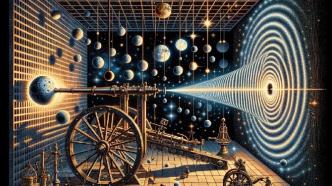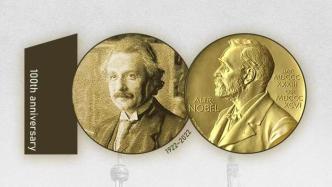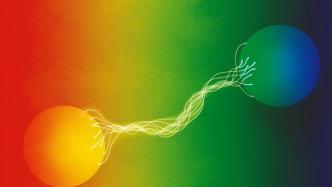
Physicists from University College London (UCL) proposed a surprising theory in two papers published in Physical Review Einstein’s classic concept of space and time.
Modern physics is built on two pillars: quantum theory, which governs the smallest particles in the universe, and Einstein's general theory of relativity, which explains gravity through the curvature of space-time. But the two theories contradict each other, and reconciliation has been elusive for more than a century.
A common assumption is that Einstein's theory of gravity must be modified, or "quantized," to accommodate quantum theory. However, the "post-quantum theory of classical gravity" proposed by the research team in "Physical Reviews X" this time challenges this assumption and shows that space and time may be classical, that is, not governed by quantum theory at all.
Rather than modifying spacetime, the new theory modifies quantum theory and predicts an inherent collapse of predictability mediated by spacetime itself. This causes random, violent fluctuations in space-time that are larger than quantum theory envisages, making the apparent weight of an object unpredictable if measured accurately enough.
The paper published in Nature Communications proposes an experiment to test this theory: measure the mass very precisely and see whether its weight fluctuates over time.
Research has proven that if space-time does not have quantum properties, then there must be random fluctuations in the curvature of space-time, which have specific characteristics that can be verified experimentally.
Although the experimental concept is simple, weighing the objects requires extreme precision. The research illustrates a clear relationship between two measurable quantities - the scale of fluctuations in space-time, and how long an object such as an atom or an apple can remain in a quantum superposition of two different locations.
The starting point of this theory is that researchers are trying to solve the black hole information problem. According to standard quantum theory, information about objects entering a black hole is not destroyed, but this violates general relativity (which states that objects that pass through the black hole's event horizon can never be understood). And because of a fundamental breakdown in predictability, the new theory allows information to be destroyed.
[Editor-in-Chief’s Circle]
Einstein's persistence in beauty gave us the special theory of relativity and the general theory of relativity. The very different temperament of quantum mechanics made it difficult for Einstein to accept it. Currently we are in a gray area where the two have to compromise. The macroscopic scale of the world not covered by Newtonian mechanics is explained by the theory of relativity, and microscopic issues are explained by various quantum gravity and string theories. Which theory is more promising remains up in the air. Even if the quantum gravity theory is successful, there is still the problem of dark matter and dark energy. This new theory takes a unique approach, digging a tunnel from the other end, trying to shake hands between Einstein and quantum theory, and may create a new frontier in theoretical physics. We'll see.


